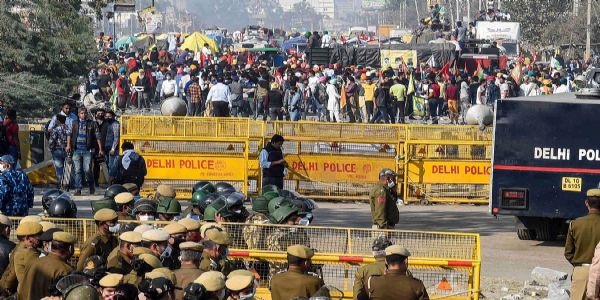Bail to Safoora Zargar on 'humanitarian' grounds no way proves her innocence!
Total Views | 46
A New Delhi Court on Tuesday granted bail to Safoora Zargar, a 27-year-old student activist who was jailed in April in a case related to the religious violence in capital New Delhi earlier this year. The government has approved this only on the condition that she does not involve herself in activities that could hamper the investigation. She has also been directed to not leave the capital city.
This is after Zargar's imprisonment, despite her pregnancy and amid the coronavirus pandemic, had caused widespread outrage, with activists and lawyers across the country calling for her release on humanitarian grounds. She was charged under the Unlawful Activities Prevention Act, 2019 (UAPA), a stringent anti-terror law rights groups have labelled draconian. Police accuse her of being a key conspirator in the February violence that erupted in northeast Delhi during nationwide protests against the controversial Citizenship Amendment Act (CAA).

It is on June 22 that solicitor general Tushar Mehta, appearing on behalf of the Delhi Police had opposed the bail plea of Zargar who is in her fifth month of pregnancy and was arrested on 10 April. Mehta had argued that 39 deliveries have taken place in Tihar jail over the last 10 years, and that Zargar was getting adequate medical care. The next day, on June 23, Mehta conceded that the Police had no objection to Zargar’s release on 'humanitarian grounds' and she was granted bail on certain conditions— no travel without permission, no influencing witnesses, no engagement in activities for which she is being investigated.
The decision however has been hailed as a welcome move, given that various national and international human rights organizations had been advocating for the release of Zargar and others detained during the pandemic, the list includes The International Federation for Human Rights, the American Bar Association and the United States Commission on International Religious Freedom. The grounds of release are a peculiar concession, given the arguments made a day earlier, as well as the denial of bail in three earlier hearings, under the same circumstances.
Zargar now has to seek permission from the trial court to travel, and will remain in touch with the investigating officer of the case over mobile phone once every 15 days. This is nothing alike to a 'win win' situation as the Police still call her a key conspirator in Delhi riots that swept the city in February killing 53. The government has literally taken the decision based on the ground of humanity as the lady is 23 weeks pregnant and needs proper medication. Moreover, the lady has been asked to stay in the city of Delhi itself inspite of her familiy's constant demands to shift her to Faridabad for treatment. The Tihar jail already occupies double of what it's capacity is. Her incarceration in the overcrowded Tihar jail has caused a lot of concern, especially at a time when India is under a strict lockdown to fight the coronavirus pandemic. She has also been asked to pay a personal bond of 10,000 rupees before her release.
Zargar is among a number of Muslim students and activists who have been jailed since India's lockdown began on 25 March, leading to accusations that the government is using the pandemic to crack down on free speech and dissent. As a member of the Jamia Coordination Committee (JCC), a student group at her university, she had been active in organising peaceful protests against the Citizenship Amendment Act in north-east Delhi. Critics of the law have said that it discriminates against Muslims.
The government of India has been exceedingly intolerant towards free speech and dissent. But to arrest Safoora who is in the second trimester of her pregnancy and send her to an overcrowded prison during the pandemic highlights how brutal is the ongoing clampdown in the country. What actually remains to be seen is the extent to what we can trust the Modi government and the judiciary system realising the movement to make India a better place for justice!
Counter Point-
Bharati Web






